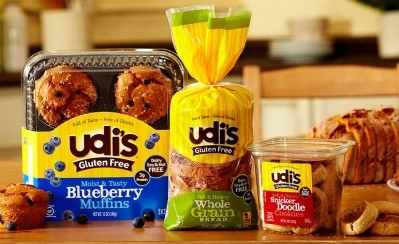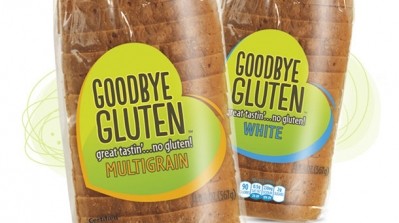Special edition: Gluten-free
Culinary Tides: ‘Not only have we already hit the ceiling, the gluten-free bubble is already bursting’
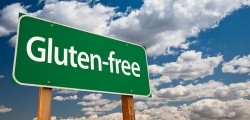
As manufacturers are well aware, according to Suzy Badaracco, president of trend watcher Culinary Tides, people with a medical need to eliminate gluten represent a tiny fraction of the population.
The juicy numbers in reports on the gluten-free market by Packaged Facts and Mintel, therefore, are based on the assumption that the broader customer base - comprising people who buy gluten-free products out of choice, rather than necessity - will continue to do so, she says.
And that is by no means clear, she told FoodNavigator-USA in an interview as part of our gluten-free special edition.
“Not only have we already hit the ceiling, the gluten-free bubble is already bursting and consumers are abandoning the diet,” claimed Badaracco, who said some of her food industry clients "are already recognizing that they might need an exit strategy".
Pay attention to behavioral research to see what consumers are really doing with the trend
Forecasts based on historical sales, product launches and label claims, rather than research that provides a deeper insight into consumers’ motivations, should be viewed with caution, she claimed.
“Pay attention to behavioral research to see what consumers are really doing with the trend, not linear forecasts that look at how many products companies are launching.
“Our research is based on Chaos theory and military intelligence so we sit on a different part of the playground than other forecasters. We forecast on and cross analyze all government, technology, adversary / ally, competitors, research, and flavor and cuisine movement for our clients.”
The battle for airtime: Allies and adversaries
While books like Grain Brain and Wheat Belly remain on bestseller lists and some athletes and celebrities continue to swear by the gluten-free diet, the message being repeated again and again by celiac researchers, RDs, medical doctors and organizations such as the Academy of Nutrition and Dietetics hasn’t changed, and is finally starting to gain traction in the media, she claimed.
And that message is clear, she claimed: For people who do not have celiac disease (less than 1%), non-celiac gluten sensitivity (an estimated 6%, but impossible to verify in the absence of a validated biomarker) or a wheat allergy (less than 0.5%), eliminating gluten will not improve your health or athletic performance, or help you lose weight.
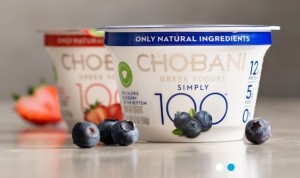
“The gluten-free diet is a medical diet. Following it if you don’t need to won’t make you a healthier person.”
It's taken a while, but these voices are getting more air time in the mainstream media, she claimed, noting that in The Best And Worst Health Trends Of 2013 - a report from Health.com covered by all the major news networks when it was released in December 2013, 'Going gluten-free for no reason' was right up there in the 'worst' category, while a Dr Oz episode from the same month also singled out the gluten-free diet as a flawed approach to weight loss (click here).
“The gluten-free trend has more than 65 adversaries who are trying to reposition it as it is a very destructive diet for the gut,” said Badaracco.
Attitudes will change as consumers are becoming more educated
And as the public becomes more educated, and more precise data comes out on the numbers of people that have NCGS (click here), attitudes will change, and people who may currently be buying gluten-free on a false premise may lose interest, she predicted: “For example, some 20% mistakenly choose gluten-free because they think products are low in carbohydrates.”
A closer analysis of consumer survey data from 2010-2014 also suggests that the anti-gluten tide might be turning, she claimed (although other surveys present the opposite view - click here).
For example, while 35% of consumers surveyed by Hartman Group in 2012 said they bought gluten-free foods because they were healthier, this figure was 46% in 2010, she noted.
Meanwhile, she added, “Consumers who thought gluten-free was a gimmick doubled from 11% in 2010 to 24% in 2012. And 20% said gluten-free was a fad.”
Mintel data highly inflates gluten-free market
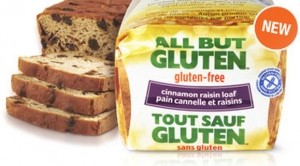
We should also look closely at what market researchers are basing their figures on, she said, noting that Mintel data in particular “highly inflates” the size of the market (pegged at an estimated $10.5bn in 2013), as the vast majority of products captured in its data are things like beverages, potato chips or yogurts that are labeled gluten-free, but are most likely not being purchased because of their gluten-free credentials.
As Mintel itself makes clear in its Sept 2013 GF report: “The leading gluten-free food and beverage companies mostly produce items that are typically gluten-free and now are labeled as such.”
Consumer surveys meanwhile, reveal that many shoppers do not even realize the products in question are gluten-free, and are not buying them for this reason.
According to Hartman Group, said Badaracco, “53% who bought gluten free did not know the product was gluten free and had no intention of buying gluten free.”
Some of my clients are already recognizing that they might need an exit strategy
She added: “When the corn industry came under attack by people claiming high fructose corn syrup played a unique role in obesity and was seen by the body as different to sugar, it mobilized huge resources to defend itself.
"The grain industry has also been under attack, and has been unfairly demonized for decades, but has not organized and defended itself as effectively.”
If it does get its act together, she said, the size of the gluten-free prize may appear somewhat less juicy.
*Euromonitor International says the US gluten-free market grew 35% from $361m in 2011 to $486m in 2013 - and will grow a further 38.5% from 2013-18; Mintel - which has a far broader definition - said the market grew 44% to $10.5bn over the same period and will grow a further 48% to $15.6bn in 2016.
Click here for more details.
Don't miss The FoodNavigator-USA Forum: Gluten-free in Perspective
11.30am EST, April 30, 2014.
Find out more about gluten-free market trends and growth opportunities; the science behind celiac disease, gluten intolerance and wheat allergy; the technical challenges of formulating great-tasting gluten-free products; and the latest consumer research.
This LIVE online panel debate moderated by FoodNavigator-USDA editor Elaine Watson brings together world-renowned celiac disease researcher Dr Alessio Fasano; TJ Mcintyre from leading gluten-free manufacturer Boulder Brands (Udis, Glutino);DrDavid Sheluga, director of commercial insights at food and ingredients giant ConAgra Foods; and Tom Vierhile, innovation insights director at Datamonitor.
